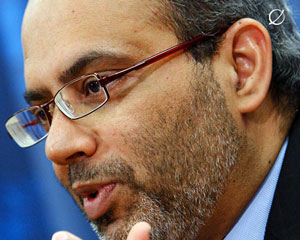
FINANCING of regional infrastructure projects including the US$2,8 billion Batoka Gorge hydro-electricity power plant will be up for discussion when three pan-African institutions meet in Tunis this week.
REPORT BY OUR STAFF
The African Development Bank (AfDB), African Union Commission (AUC) and the United Nations Economic Commission for Africa (ECA) are meeting for a two-day roundtable discussion beginning Friday to explore opportunities for financing Africa’s infrastructure through the AfDB’s Africa50 Fund.
Africa50 Fund, a brainchild of the AfDB, is meant to mobilise resources from the continent to finance critical infrastructure projects.
According to the organisers, African firms are increasingly becoming uncompetitive due to poorly maintained key infrastructure.
The AfDB’s Africa50 Fund is being hailed as an innovative vehicle to advance a number of key related areas, including Africa’s natural resources, internal savings, external support and capital markets to finance bankable, high-return, transformational regional infrastructure projects.
“We need to optimise the impact of the various initiatives within a collective and coordinated framework,” said ECA executive secretary Carlos Lopes. “Ultimately, our aim is to strengthen partnerships to accelerate the delivery of Africa’s transformation agenda.”
The priorities will be anchored on on-going initiatives such as the Programme for Infrastructure Development in Africa (Pida) and other initiatives by regional economic communities.
- Chamisa under fire over US$120K donation
- Mavhunga puts DeMbare into Chibuku quarterfinals
- Pension funds bet on Cabora Bassa oilfields
- Councils defy govt fire tender directive
Keep Reading
The Batoka power plant, alongside other 48 infrastructure projects, was accorded priority status under Pida as key for regional integration.
The Batoka project is a critical energy project for Zimbabwe and neighbouring Zambia and is expected to generate up to 1600MW, which will be shared equally by the two countries. The project has been on the cards for a number of years due to funding constraints.
Pida’s overall aim is to promote socio-economic development and poverty reduction in Africa through improved access to integrated regional and continental infrastructure networks and services.
Its financing costs are projected to total US$68 billion.
Resources would be channelled in projects such as prioritised regional and continental infrastructure investment programmes in energy, transport, information and communication technologies and trans-boundary water resources.
It involves the construction of a dam and a hydro-power plant on the Zambezi River.
The detailed feasibility studies, which were completed in 1993, indicated that it is economically and technically feasible to construct four 200 MW units on the Zimbabwean side.
If executed, the Batoka project would alleviate the power shortages currently prevailing in the country.
The power utility, Zesa, is generating an average of 1 400MW daily with imports of around 100MW.
According to AfDB’s 10-year strategy in the period 2013-2022, infrastructure development has been classified as a priority area. The strategy says the continent invests only 4% of its Gross Domestic Product (GDP) compared with 14% in China.
It said that bridging the infrastructure gap could increase GDP growth by an estimated 2 percentage points a year.











